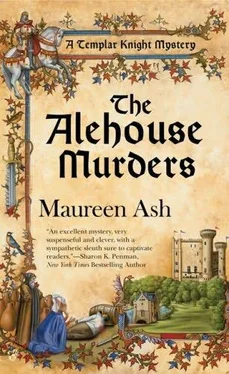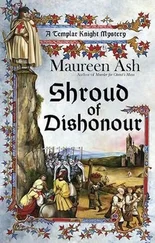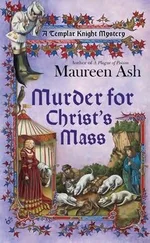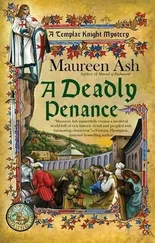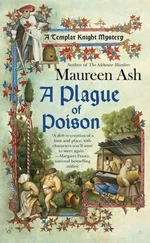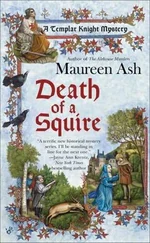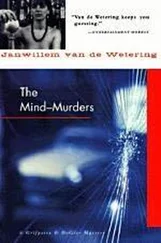Maureen Ash - The Alehouse Murders
Здесь есть возможность читать онлайн «Maureen Ash - The Alehouse Murders» весь текст электронной книги совершенно бесплатно (целиком полную версию без сокращений). В некоторых случаях можно слушать аудио, скачать через торрент в формате fb2 и присутствует краткое содержание. Жанр: Исторический детектив, на английском языке. Описание произведения, (предисловие) а так же отзывы посетителей доступны на портале библиотеки ЛибКат.
- Название:The Alehouse Murders
- Автор:
- Жанр:
- Год:неизвестен
- ISBN:нет данных
- Рейтинг книги:4 / 5. Голосов: 1
-
Избранное:Добавить в избранное
- Отзывы:
-
Ваша оценка:
- 80
- 1
- 2
- 3
- 4
- 5
The Alehouse Murders: краткое содержание, описание и аннотация
Предлагаем к чтению аннотацию, описание, краткое содержание или предисловие (зависит от того, что написал сам автор книги «The Alehouse Murders»). Если вы не нашли необходимую информацию о книге — напишите в комментариях, мы постараемся отыскать её.
The Alehouse Murders — читать онлайн бесплатно полную книгу (весь текст) целиком
Ниже представлен текст книги, разбитый по страницам. Система сохранения места последней прочитанной страницы, позволяет с удобством читать онлайн бесплатно книгу «The Alehouse Murders», без необходимости каждый раз заново искать на чём Вы остановились. Поставьте закладку, и сможете в любой момент перейти на страницу, на которой закончили чтение.
Интервал:
Закладка:
As they rode slowly through the press of people still busy readying the town for the next morning when the fair would begin, thunder began to rumble in the heavens. At first it was low and far off, but soon it came closer, and was so loud in their ears that the church bells ringing the hour of Vespers could hardly be heard. Just as they passed the large street that intersected with Mikelgate, called Clachislide, a procession pushed past them. It was led by a few of the more prosperous merchants of the town, including Rolf the Draper, Aeltheburt the Goldsmith and a man from Baxtergate who was a prominent baker. Behind them trailed other small tradesmen, all dressed in what appeared to be their best clothes, and conspicuously wearing badges, denoting their craft, on their sleeves.
“Looks like a deputation on their way to the castle,” suggested Ernulf, “probably to protest that there is not enough being done to catch the murderer in our midst. The sheriff will not be pleased.”
Bascot made no response. Soon they came to the small turning that held the shop of Thomas the Carpenter, and left their horses on Mikelgate, tied to a post put there for the purpose. Overhead the first hint of lightning appeared, a small tongued flash flickering momentarily before it vanished, making the horses skitter and pull at their fastenings.
Ernulf and Gianni went to the door of the carpenter’s shop and the serjeant rapped loudly. In a short time a woman appeared. She was slim and neatly dressed, her head tidily covered in a white coif, with a large apron covering her gown. Ernulf announced Bascot in a manner that made the Templar smile inwardly.
“Sir Bascot de Marins, Templar knight in the service of Lady Nicolaa de la Haye, come to question the woman, Agnes,” he said in a strong voice.
The woman bobbed in deference, then stood aside to allow Bascot to enter. “I am Jennet, Tom Carpenter’s wife, and Agnes’ sister,” she said. “I will get her for you directly, Sir Bascot.”
She led them into the only room on the ground floor of the dwelling, where a table and chairs were standing in the middle of the room. On one side a few wooden eating utensils had been placed on top of a shallow chest, and baskets of onions and other root vegetables hung from the rafters. Directly in front of them at the back of the room a door looked as though it led out into the yard. Jennet disappeared up the narrow staircase to the room above, returning quickly with the alewife trailing reluctantly behind her.
Jennet bobbed again as Bascot seated himself in one of the chairs. Ernulf took up a position at the front door while Gianni placed himself behind his master’s chair.
“Here is my sister, sir,” Jennet said, pushing Agnes forward and down into the semblance of an obeisance. “She is still somewhat mazed from the loss of her husband, my lord. Earlier I gave her a potion with herbs to help her sleep. It is this that is making her so muddled in her steps.”
The alewife did indeed look slightly disorientated but Bascot thought it was due more to his presence than her sister’s herbal potion. “You told me this morning that you knew of nothing having been secreted in your brewing yard, mistress. That was not true, was it?”
His stern words and the import of them seemed to snap Agnes back to clearheadedness. “Oh, yes, my lord. It was. Truly it was,” she said, clutching her hands together in front of her, mouth quivering.
“Tell Sir Bascot what you told me, Agnes,” Jennet interjected, then looked at Bascot. “I’m sorry to interrupt, sir, but my sister-well, she gets confused sometimes, especially now, finding her husband and those others dead and all. I was going to see Father Anselm in the morning and ask him if he would arrange for us to see you, Agnes and me, so she could tell you what she forgot to tell before.”
Jennet said this deferentially and Bascot scrutinised her more carefully. There was only the faintest of physical resemblances between the two sisters, and he could see that, unlike the alewife, Jennet possessed an innate intelligence. Agnes, on the other hand, looked to be more sly than clever. That morning when he had questioned the alewife in the presence of the priest she had seemed so distraught that the answers he had received had been scarcely understandable. Now, he realised, this could have been merely a method of dissembling.
He gave the alewife a look of impatience and she responded by repeating, in a rush of words, what she had told her sister that morning. “I don’t know anything of what Wat was doing, sir,” she said finally. “He told me to keep myself upstairs and that’s what I did, all night until it was time to come down in the morning.”
As her sister looked at Bascot to see if he was impressed by the tale, the alewife hung her head, darting a glance from beneath her brows first at Bascot, then at her sister. Her wide face was blotchy, which could have been due to the tears she had shed that morning, or it could have been from fear. Throughout his long captivity Bascot had become well versed in the meaning of facial expressions-a sudden colour, or lack of it, in the skin; the quick glance of an eye or the tremble of a muscle. When one is a slave among other slaves and all subject to the whim of a master, it is well to be able to recognise the emotions behind another person’s eyes. He instinctively knew that the alewife was not telling the truth.
“You are lying, mistress,” Bascot said flatly. “You were not in your bed all night. If you had been, whoever murdered those three people and your husband would have killed you too. It is not likely he would have left so convenient a witness. Unless, of course, you were his accomplice.” It was a wild guess he was making, that she had not been in her bed, but it seemed a reasonable one.
Agnes began to cry again, protesting her innocence and her sister, white and drawn, stood watching him. He stood up and said harshly, “My patience is at an end. Ernulf, take this woman to the castle. Perhaps a few days incarceration in a lonely cell will loosen her tongue. If not, there are other ways of making her tell us what she knows.”
As he finished speaking there was a crack of thunder overhead, so loud that it seemed as though the very walls would split asunder. From the doorway to the yard two men appeared, one tall and thin with the leather apron of a carpenter over his rough smock, the other similarly clad but younger, with a sturdy frame and a shock of hair as red as Jennet’s. When they caught sight of Bascot they stopped in the doorway and bobbed their heads deferentially. They were, presumably, Jennet’s husband and son. The thunder continued to sound and then there was the heavy patter of falling rain, plopping loudly into the yard behind them. The noise lent weight to Bascot’s words, seeming as though God himself was reinforcing the Templar’s judgement.
Agnes had now fallen to her knees, imploring Bascot not to take her away and begging her sister to help her. Her wailing was interrupted by a loud knocking on the door of the small house. Ernulf opened it to find outside the man-at-arms he had left on guard at the alehouse. The soldier asked the serjeant if he could speak to him privately and Ernulf disappeared through the door, returning almost immediately.
“There’s been a stabbing,” he said in response to Bascot’s questioning look. “The priest at St. Andrew’s, Father Anselm. A parishioner found him behind the altar, lying in his own blood.”
“How could that be? I just left him preparing to celebrate evening Mass,” Bascot exclaimed.
“Must have happened after you left, and before anyone arrived for the service.”
“Is he alive?” Bascot asked.
“Barely. Sheriff Camville’s town guard is there, and a leech. My man thought you might want to know.”
Читать дальшеИнтервал:
Закладка:
Похожие книги на «The Alehouse Murders»
Представляем Вашему вниманию похожие книги на «The Alehouse Murders» списком для выбора. Мы отобрали схожую по названию и смыслу литературу в надежде предоставить читателям больше вариантов отыскать новые, интересные, ещё непрочитанные произведения.
Обсуждение, отзывы о книге «The Alehouse Murders» и просто собственные мнения читателей. Оставьте ваши комментарии, напишите, что Вы думаете о произведении, его смысле или главных героях. Укажите что конкретно понравилось, а что нет, и почему Вы так считаете.
